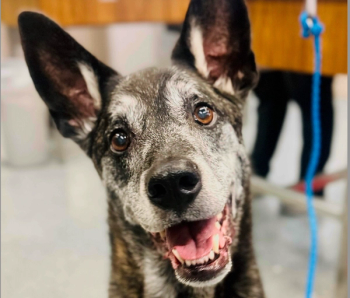
Students report instances of 'problematic language' at veterinary schools
AAVMC-conducted research says students still report hearing language of sexism, racism and homophobia from veterinary school students and professors.
Shutterstock.comAn Association of American Veterinary Medical Colleges (AAVMC) follow-up study to assess the social climate at veterinary colleges has found some improvement as compared with the
In the current study, more than 40 percent of students reported hearing sexist comments from fellow students, and one in three reported hearing this language from veterinary faculty, the JAVMA article states. About a third of respondents have heard comments from other students about race, gender identity, sexual orientation, disability, religion or other demographic characteristics. The AAVMC found that nearly 20 percent of respondents felt as though fellow students were intentionally excluding them from veterinary college life.
Overall, the association reported faculty were using problematic language less often, but that was offset by student-to-student comments, according to JAVMA.
Respondents disagreed about whether veterinary colleges are doing enough to support LGBTQ students and students with disabilities, as well as how members of underrepresented groups are hired in faculty and staff positions. Male students and faculty are more likely to report that veterinary colleges are fair and supportive to these minority populations, the JAVMA article states.
Other key findings:
> There are no longer statistical differences across student groups in terms of having mentors and confidant relationships with veterinary faculty and staff.
> Students want more diversity and inclusion programming.
> Students report being comfortable with student diversity, though some still feel marginalized.
> Students who identified themselves as minorities in terms of race, sexual orientation or religion were less likely to feel comfortable with peers than those in majority groups.
The AAVMC also noted that programming and diversity initiatives at the schools have helped boost the improvements seen since the last survey.
According to the JAVMA article, in 201, nearly one-third of racially or ethnically underrepresented veterinary students reported hearing racist comments from their peers. More than 20 percent of LGBTQ students reported hearing homophobic comments from students. The study also found that students were more likely to make comments about race and sexuality than faculty or staff members.
Both studies examined student, faculty, intern/resident, staff and administrator perspectives regarding the inclusion and comfort levels of students from underrepresented groups, including racial and ethnic minorities, those with impairments or disabilities, and LGBTQ students, JAVMA reports. The researchers plan to publish aggregated findings in JAVMA next year.
Newsletter
From exam room tips to practice management insights, get trusted veterinary news delivered straight to your inbox—subscribe to dvm360.






